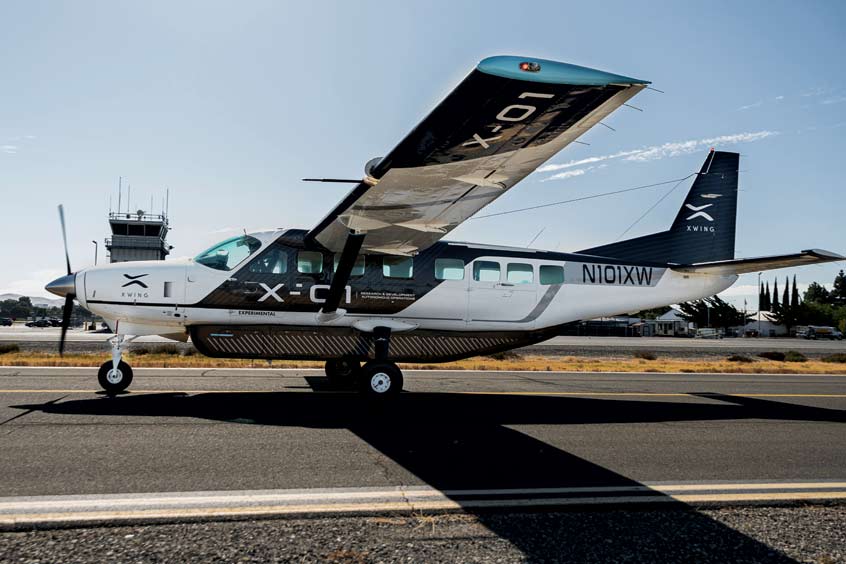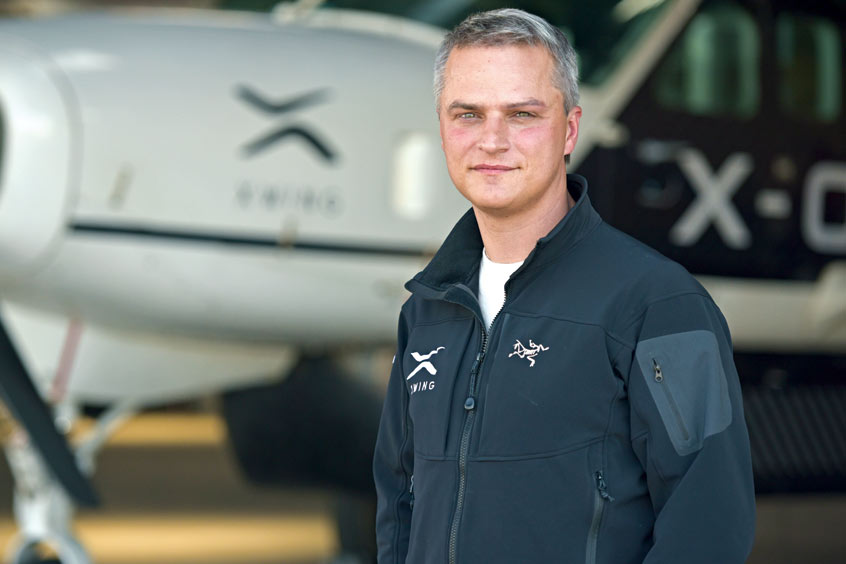ACE 2026 - The home of global charter.
 The bimonthly news publication for aviation professionals.
The bimonthly news publication for aviation professionals.



Xwing has successfully executed numerous passenger-carrying autonomous take-off to landing flights in a Cessna 208B Grand Caravan. This marks the first time a company has performed a fully autonomous flight for an aircraft of this category. After lying low for the last four years, the company is now announcing its regional operations model, focused on distances within a 500 mile range.
The company has obtained a Part 135 Air Carrier certificate and will look to start commercial cargo flight operations in the coming months. Xwing expects to deploy its technology to market more quickly by operating its own fleet, but is open to future partnership and licensing opportunities with other operators to make the technology more widely available.
Air transportation is facing a low supply and high demand market. According to the FAA, the industry has suffered a 30 per cent reduction in qualified pilots over the last 30 years. Meanwhile, the advent of next-day shipping has put immense pressure on companies resulting in high transportation costs and supply chain challenges. Despite these shortages, the infrastructure to support a more efficient air cargo industry already exists but is largely under-utilised, according to Xwing.
The company's autoflight system can be retrofitted to existing aircraft to convert planes into optionally piloted vehicles by integrating with onboard flight control systems that allow the aircraft to navigate, take off and land autonomously, ensuring more cost-effective operations for logistic companies.
The system is designed to be supervised by remote operators who work with air traffic controllers to ensure safety throughout the flight. Xwing's model increases aircraft operator utilisation by three times, equating to 20-30 per cent cost savings for the $142.4 billion US air cargo transportation market.
Xwing's Autoflight System features: detect-and-avoid sensors reliably analyse airborne and ground-based hazards, providing the Autoflight System with increased situational awareness to precisely determine the aircraft's position and hazard's positions; and navigational control, using increased situational awareness, the software generates optimal flight paths, interfaces with air traffic control, monitors system health, and addresses contingencies. The remote operators have full control over the aircraft systems to manage the aircraft and maintain flight safety.
“The future of air transportation is autonomous,” states Marc Piette, CEO and founder of Xwing. “We believe the path to full autonomy begins with the air cargo market, and involves remote operators supervising fleets of unmanned aircraft.”
Focusing on detect-and-avoid systems, Xwing is more than a year into NASA's Unmanned Aircraft System in the National Airspace System programme, and has been working with the FAA to obtain certification for unmanned 9,000lb Cessna 208B Grand Caravan aircraft with cargo capacity of over 4,000lbs, as they are extensively used for regional cargo and humanitarian missions throughout the world.
On this type, Xwing has completed a large volume of testing with thousands of simulation runs, software system tests and flight tests that include low and high-speed ground taxi tests, take-offs, navigation in the airspace, detect-and-avoid tests and landings. Since July, it has completed more than 70 hours of engine time for ground and flight tests, and more than 40 hours of automated flight time.
The company was founded by Marc Piette, a former engineer, entrepreneur and pilot, who sold his last company to GoDaddy. Xwing's CTO Maxime Gariel, formerly of Rockwell Collins Controls Group, brings over a decade of aviation and autonomy experience and previously worked on autonomous aircraft projects including the AgustaWestland SW4 Solo autonomous helicopter and DARPA Gremlins. The company employs nearly 20 engineers who have decades of experience at Rockwell Collins, Lockheed Martin Skunk Works, Aurora Flight Sciences, Facebook, Uber, Microsoft and Apple.